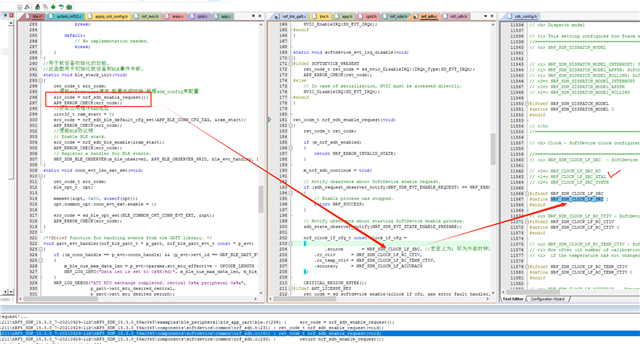Nrf52832 I/O is from P0.00~P0.31, I want to use one of the I/O to do parallel input and output, how to set? For example, with P0.02~P0.17, these 16 I/O ports make a 16-bit input parallel port.
Another experiment was done today, if Bluetooth sends data (calling ble_nus_data_send function) timer240us into an interrupt is not accurate. If only the Bluetooth connection is successful and no data is sent, 40us is accurate. This is also a problem with other timers.Could you please help me find out what the reason is?
Please help resolve these problems, thanks!



